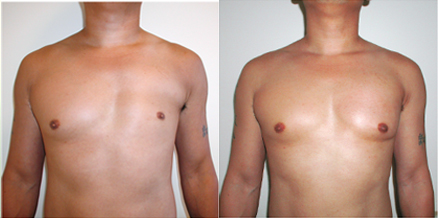Propranolol 10mg
Propranolol 10 mg belongs to a group of medicines called beta blockers. It can treat heart problems, help with anxiety and prevent migraines. It doesn’t have a brand-name version, so, you can buy Propranolol only as a generic drug.
How Does It Work?
Beta-blockers affect the heart and circulation (blood flow through arteries, veins and blood vessels). It is a non-selective beta-receptor blocking agent. This means it works similarly on the heart, lungs, and other areas of the body.
It is a prescribed drug that has several forms: oral tablet, oral extended-release capsule, oral solution, and injectable. Propranolol oral strengths can be: 10 mg, 20 mg, 40 mg, 60 mg, and 80 mg. It should be taken 15-20 minutes before meals. However, the first intake is worth being before bedtime. The appropriate dose is set for each patient individually, depending on the symptoms and their severity. For some diseases, the doctor may increase the recommended dose or prolong the duration of your treatment.
This drug is used for long-term treatment. Regular skipping or self-canceling can lead to serious side effects. If you miss a dose, take it when you remember. However, if you remember when it’s time to take the next dose, you should skip the dose you forgot.
| DRUG NAME: | PROPRANOLOL |
| Tablet Strength: | 80 mg, 40 mg, 820 mg, 10 mg |
| Best Price: | $0.29 Per Pill |
| Payment: | Visa, MasterCard, PayPal, BTC |
| WHERE TO BUY PROPRANOLOL? | VISIT CANADIAN PHARMACY |
If to speak about heart problems, a physician may prescribe Propranolol as it can:
- treat high blood pressure;
- treat illnesses that cause an irregular heart rate, like atrial fibrillation;
- prevent future heart disease, heart attacks and strokes;
- prevent chest pain caused by angina.
This medication is also used to deal with problems associated with increased production of thyroid hormones and may be part of combination therapy.
In case of physical symptoms of anxiety, like sweating and shaking, Propranolol also shows its high effectiveness.
Patients should not choose a dosage on their own, or increase or decrease it without medical advice, as this can lead to unpleasant side effects.
Side Effects
The intake of this drug can cause drowsiness. So, it is not advised to drive, use machinery, or perform any activities that require mental alertness until you know how this drug affects you.
As a rule, treatment is calm and safe. However, sometimes there can be such common side effects as:
- From the side of the cardiovascular system and blood (hematopoiesis, hemostasis): bradycardia, heart failure, AV blockade, hypotension, impaired peripheral circulation, thrombocytopenic purpura, leukopenia, agranulocytosis.
- From the nervous system and sensory organs: asthenia, dizziness, headache, insomnia, drowsiness, nightmares, a decrease in the speed of mental and motor reactions, emotional lability, depression, agitation, hallucinations, disorientation in time and space, short-term amnesia, increased fatigue, weakness, impaired sensitivity, paresthesia; dry eyes, eyesight disturbances.
- From the digestive tract: nausea, vomiting, abdominal pain, diarrhea or constipation, mesenteric artery thrombosis, ischemic colitis, liver dysfunction (dark urine, yellowness of the sclera or skin, cholestasis), taste changes.
- From the respiratory system: pharyngitis, rhinitis, nasal congestion, chest pain, cough, shortness of breath, bronchospasm and laryngospasm, respiratory distress syndrome.
- On the part of the skin: alopecia, rash, pruritus, exacerbation of psoriasis.
- Laboratory indicators: agranulocytosis, leukopenia, thrombocytopenia, increased activity of hepatic transaminases, bilirubin, hypoglycemia.
- Effect on the fetus: intrauterine growth retardation, hypoglycemia, bradycardia.
- Others: withdrawal syndrome, weakened libido, impotence, Peyronie’s disease, decreased thyroid function, arthralgia, allergic reactions, lupus syndrome, and fever.
- During treatment, Propranolol can change the test results during laboratory tests (increased levels of urea, transaminases, and phosphatases).
There is also a very common problem while intake of Propranolol – weight gain. It can occur as a side effect of some beta blockers. If you’re taking this medicine to treat heart problems, call your doctor immediately if you suddenly gain more than 2 to 3 pounds. The problem is that this group of drugs slows down the metabolism and in the long term can cause obesity. All you can do to keep from gaining weight is to be as active as possible, get enough sleep, and eat well. This will keep metabolic processes level.
Do not be silent and do not risk your health, if you feel any of the symptoms from the list above. At first glance, some of them may not seem like a serious problem, however, they are not.
You need to inform your doctor of everything you take or plan to take. For example, you should be careful if you are taking the following drugs together with Propranolol:
- Arrhythmia drugs. If you are already taking any such medications, combining them with Propranolol can lead to various side effects.
- Blood pressure drug. In order to avoid a sharp drop in pressure, you should gradually switch to taking Propranolol if you have previously taken other similar drugs. Do not take Propranolol together with other beta blockers.
- Propranolol can affect how these drugs are cleared from the body. In order to avoid their accumulation, you should not combine them with Propranolol.
- Asthma drugs. Propranolol can increase the effectiveness of the drugs.
- Nonsteroidal anti-inflammatory drug. These drugs can reduce the effects of Propranolol. Therefore, if there is a need to take them, your doctor should think about the safest and most effective dosage.
- Blood thinner drugs. Propranolol can increase the effectiveness of such medications, so any wound or bleeding will last longer than usual.
Ideal Candidate
It can be prescribed for both adults and children. However, it is not the best idea for treating patients under 12 with Propranolol.
It is not a one-size-fits-all drug and may not be suitable for everyone. So, if something from the list below is relevant for you, be sure to tell your doctor:
- any allergic reaction;
- low blood pressure and pulse;
- heart failure;
- serious problems with blood circulation;
- any lung disease;
- emphysema;
- diabetes mellitus;
- hypoglycemia;
- acidosis;
- impaired liver and kidney function;
- psoriasis;
- spastic colitis;
- myasthenia gravis.
Propranolol is not a safe drug for pregnant women. The use of this medication is possible only if the intended benefit to the mother outweighs the potential risk to the fetus. If it is necessary to take it during this period, careful monitoring of the condition of the fetus is necessary. 48-72 hours before delivery, it should be canceled.
Breastfeeding should be stopped while treatment. Propranolol is excreted in breast milk. If its intake is needed, there should be medical supervision of the child or the patient should stop breastfeeding.
Also, feel free to tell your doctor if you are planning a pregnancy in the coming months.
Elderly patients are at increased risk of CNS side effects.
Drinking alcohol during treatment can increase the effect of Propranolol, which in turn can lead to certain side effects. Refrain from taking alcoholic beverages until you end the treatment.


















